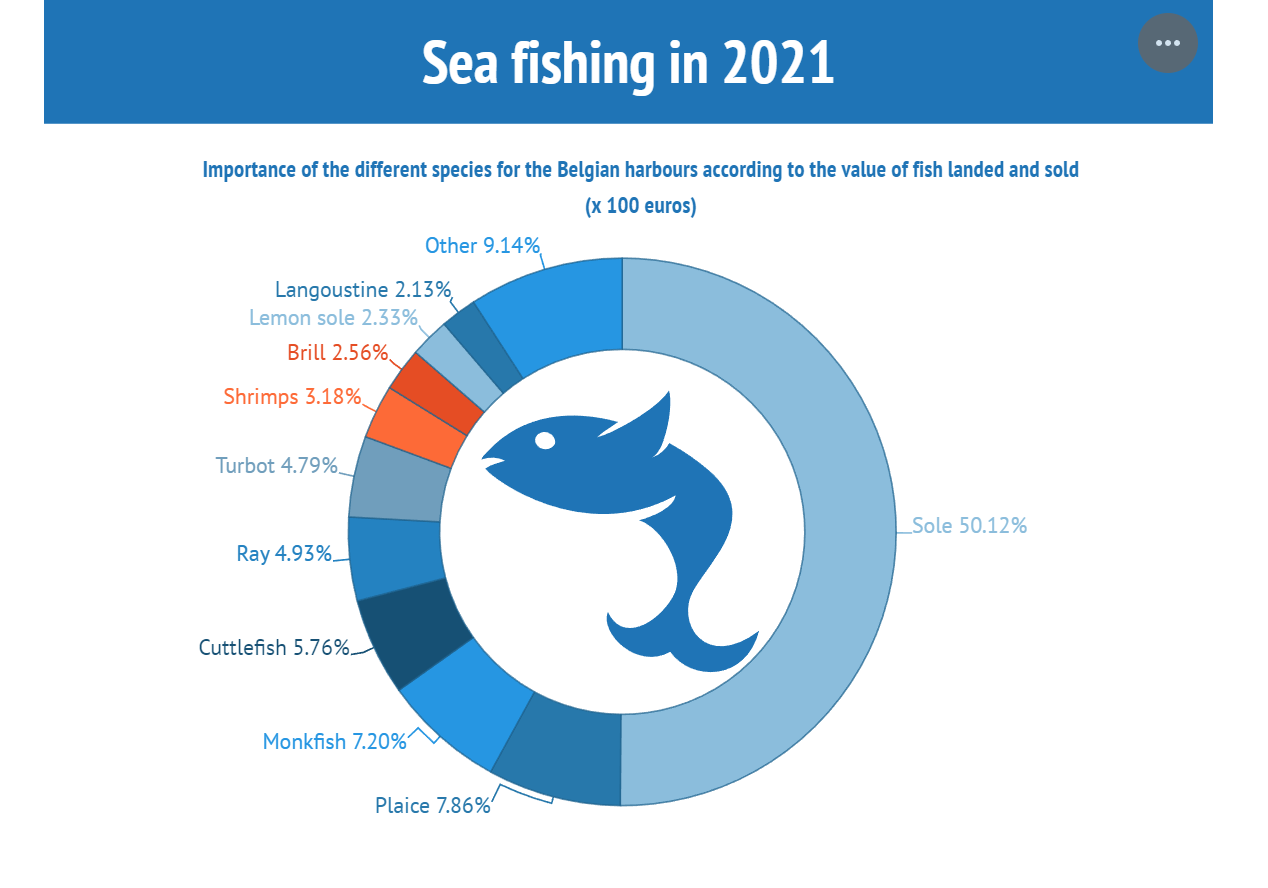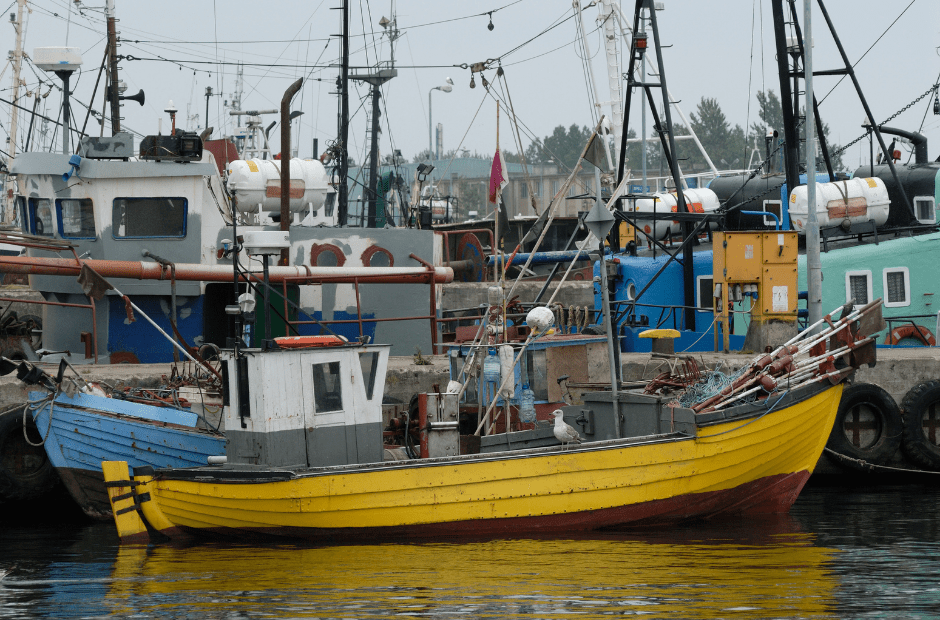Despite a reduced total catch by Belgian fishing vessels last year (down 5.5% on 2020 levels), the industry turnover rose by 7.8% to €60.8 million last year, according to statistics from Statbel the Belgian statistics agency.
This was largely thanks to rising fish prices that benefited Belgian fishermen. The average price of fish rose to €5.10 per kilogram – a 13.3% increase on 2020. The price of ray increased by 44.4%, turbot by 29.4%, sole by 11.9%, and plaice by 9.1%.
This significantly buoyed the industry after pandemic-related difficulties, when sales were severely disrupted.
The total value of fish caught in Belgium has been falling since 2015. Last year marks a reversal in this trend and is promising for the industry as a whole.
The Belgian fishing industry is centred around the port of Zeebrugge. Last year, the port accounted for 55.7% of all the fish landed and sold within the country. Belgium’s second port, Ostend saw landings fall from 44.66% to 41.9%. The port of Nieuwpoort accounts for just 2.4% of industry activity.

Credit: Statbel
Sole – a flat fish which features prominently in French cuisine – made up over 50% of the Belgian catch. This was followed by plaice (7.86%), monkfish (7.2%), cuttlefish (5.76%), ray (4.93%), and turbot (4.79%).
Overfishing in Europe and changing consumption patterns have impacted the catch of Belgian fishermen.
In 2000, 1,697 tonnes of cod were caught in Belgian waters. Nowadays, EU cod stocks are overfished and the catches are getting smaller and smaller. Between 2020 and 2021, the price of cod increased by 17.2% in Belgium. Last year, just 220 tonnes were caught, an 87% reduction.
The total amount of fish sold in Belgium is still far below previous years. At its peak in 2005, 18,785 tonnes of fish were sold in Belgium for a value of €78 million. Last year, just 11,901 tonnes of fish were sold – a 37% drop.
Challenges ahead
This year is likely to pose significant challenges to the industry. Rising fuel costs, which have hit all-time highs, disproportionately affect the fishing industry which is heavily reliant on oil products. The National Bank of Belgium predicts that the industry is one of the most likely to experience losses this year.
Besides fish, fishermen are increasingly finding a new type of catch – rubbish.
According to Federal Minister of the North Sea Vincent Van Quickenborne, Belgian fishermen fished around 65 tonnes of rubbish from the North Sea this year, three times as much as the year before.
This has been rising year on year. In 2017, Belgian fishermen brought 2 tonnes of waste ashore; this swelled to 10 tonnes in 2019.
Fishermen are being encouraged to take part in the “Fishing for Litter” campaign to help track, monitor, and reduce the amounts of rubbish found floating in Belgium’s waters.

